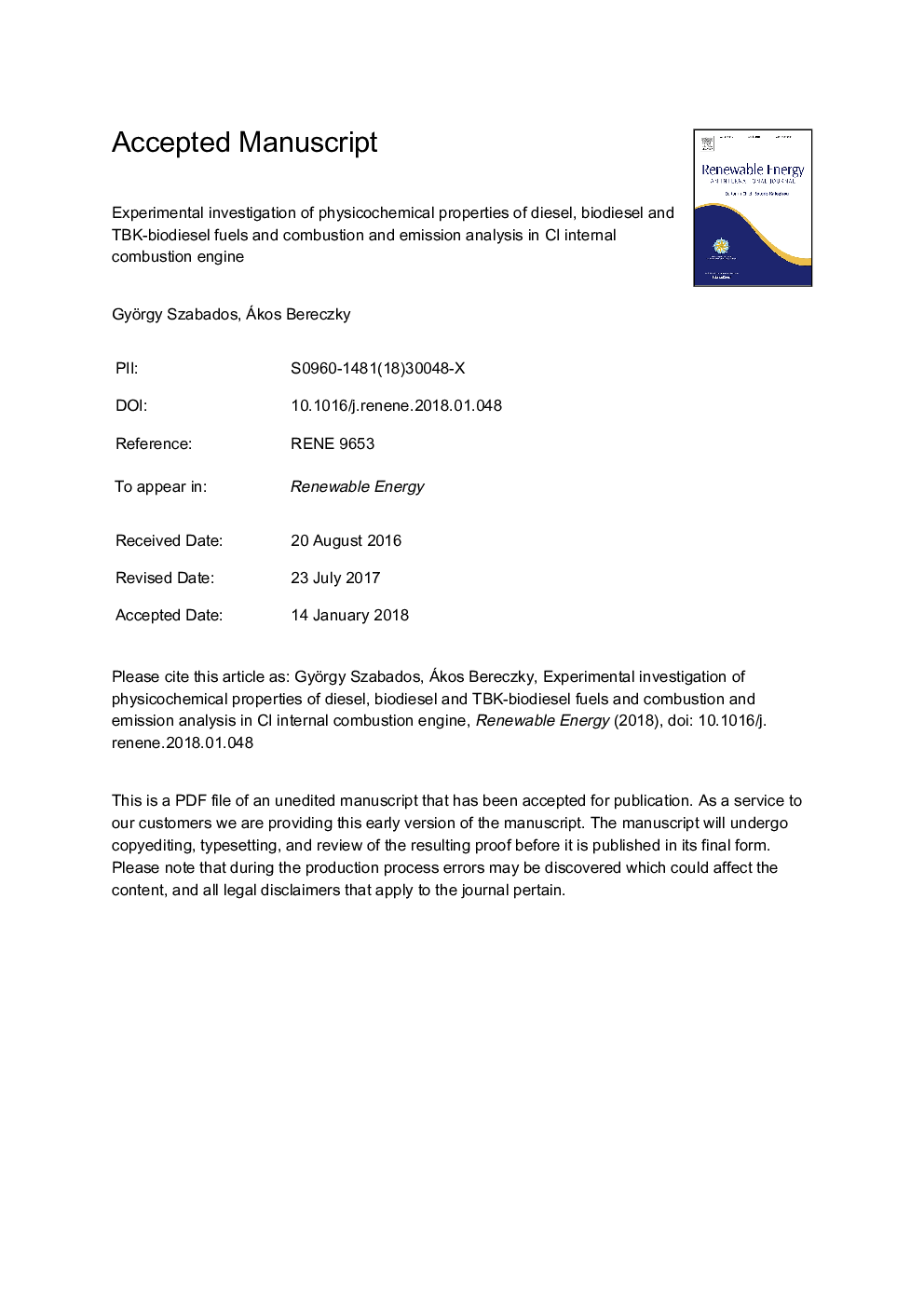| Article ID | Journal | Published Year | Pages | File Type |
|---|---|---|---|---|
| 6764817 | Renewable Energy | 2018 | 21 Pages |
Abstract
Nowadays, there is a lot of research done with renewable diesel fuels. The number of parent materials (especially sludge oil, used oil, edible and non-edible oils), production technologies, and additives of biodiesel is increasing. In our work a comprehensive comparison test series of three fuels (fossil diesel, conventional biodiesel (rapeseed oil methyl ester), and a new type of biodiesel (which is called Triglycerides of Modified Structure)) have been performed. Comparison tests have been conducted with respect to their physicochemical properties and their effect on the combustion and emission of a bus engine. Referring to the physicochemical properties, the tested biodiesel fulfil all the requirements of the EN (European Norm) 14214 standard, but the tested TBK (Thész-Boros-Király) doesn't fit some of the requirements of the EN standard. Based on the indicator and heat release results it can be established, that there is no significant, but a moderate improvement of the combustion process with bio fuels. As for the emission it can be stated, that bio fuels are advantageous as well, but the results are near to measurement accuracy, except smoke and opacity, which decreased in a high degree in case of the two tested bio fuel compared to the fossil one.
Keywords
LHVTBKPoly-aromatic hydrocarbonsTOMSHRDFSNFSODTGEPSHRRASTMHVOULSDRMEaTDCCFPPTDCPAHbTDCNOxK valuelower heating valueNitrogen oxidesAfter Top Dead CentrePalm biodieselCombustion analysisEmission analysisdifferential thermogravimetryThermogravimetryAmerican society for testing and materialsPhysicochemical propertiesUltra low sulfur dieselparticulate matterFilter Smoke NumberBefore Top Dead CentreFatty acid methyl esterFAME یا fatty acid methyl esters Top dead centrecarbon monoxideCI engineCompression ignition engineinternal combustion engineHeat release rateCold filter plugging pointEuropean normRapeseed methyl esterIce
Related Topics
Physical Sciences and Engineering
Energy
Renewable Energy, Sustainability and the Environment
Authors
György Szabados, Ákos Bereczky,
